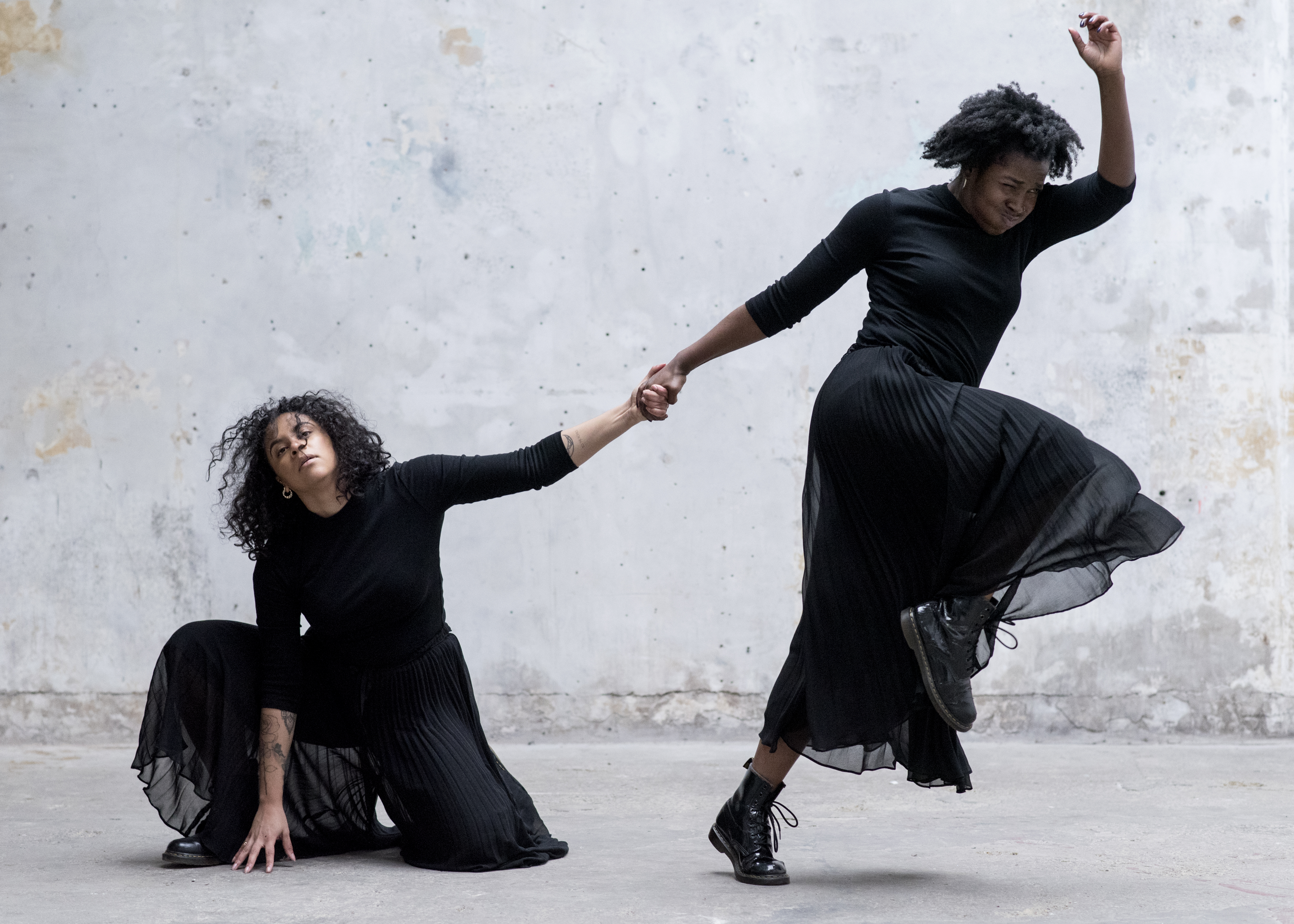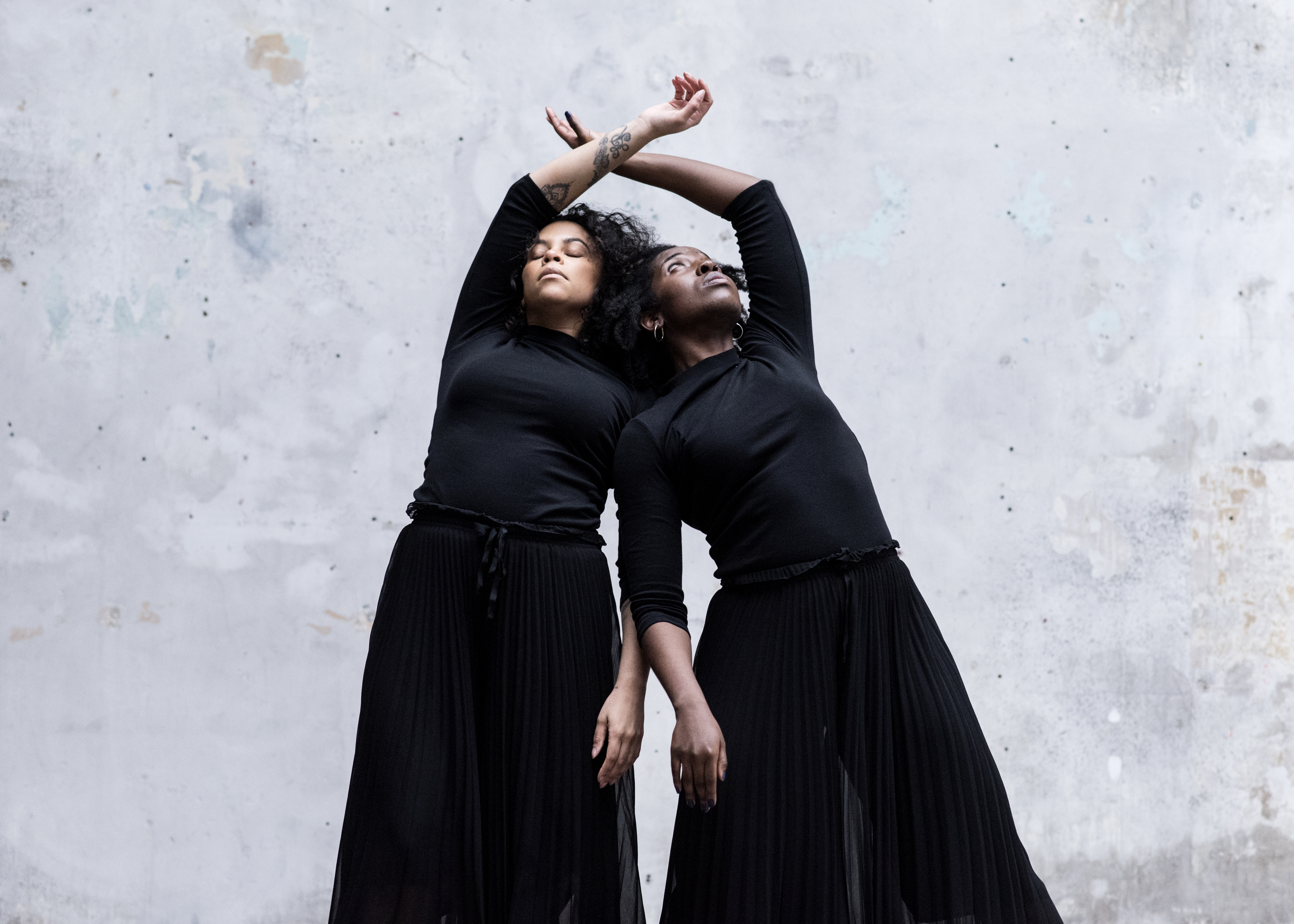Words by Maria Elena Ricci
[Trigger Warning: Sexual Violence]
It is a heavy reality to know that 1 in 4 women in the UK will experience sexual violence at some point in their lives. Roughly 85,0000 women a year, according to the Crime Survey from England and Wales.
With this terrifying, although familiar premise, Body Politic debuted its new production THEM on the 4th of March in London. Three women, Duja Sinada, Christina Dionysopoulou and Elsabet Yonas gather in the soft, intimate light of the stage at Omnibus Theatre. Sitting in a tight triangular formation, black chairs facing one another, the dancers’ bodies begin to shrink. A confused and evasive look on their faces reveals insecurity, self-doubt and fear…
Throughout the show, the performers often return to this safe place where the characters of the three victims find each other, timidly sharing fragmented memories and seeking comfort through the eyes of those who have been through the same. In a place of shared understanding, constructed by the performance space, audience members are confronted with the disbelief, shame and trauma experienced by survivors of sexual harassment, otherwise unheard. All we are asked to do is listen.
In an onset of quick fixes to their hair and make-up, we are thrown into a teenager’s bedroom, watching the girls as they perform a beauty ritual before a night out. As I sit boldly in the front row of the theatre, I think to myself: “that’s exactly how my girls and I get ready!”, not knowing what will come next. On the rhythm of House and Afro-beat soundtracks, Grace, the character interpreted by Christina Dionysopoulou, is encouraged by her friends to show off her outfit. Enacting a convincing catwalk, she strikes feminine poses in front of an imaginary bedroom mirror.
Pink lights, slow motion, first drink.

Next, Duja and Elsabet take over the dance floor — we know what’s coming. The moment confirmed that familiar sense of comradery — hands shaking hands, glasses clinking glasses — as I walked into the theatre that night. The dancers, in-and-out of solos and unison, perform social dance steps which excite the audience (myself included) and have us jamming out of our stiff wooden seats.
Pink lights, slow motion, second drink.
Giggles and supportive cheers ricochet off my side of the room when Duja unexpectedly pulls us out of the partying mood. With the entertaining music still playing and her two girlfriends still dancing by her side, she now stares into a void, petrified with a lost gaze. Soon enough, the performers move agitatedly through space, in what looks like the vortex of their own thoughts. Their powerfully loud and staccato breathwork initiates a self-inflicting movement towards the chest which both fascinates and worries me. They repeatedly point to their heads, then to their heart. Where does trauma live in the body? Trapped by their own strenuous dancing, the memories of unwanted touch, and the pain of realisation.
If anything, THEM reveals how quickly everything can change. The spoken text, paired with voice recordings of personal stories and incident reports intermittently playing throughout, contributes to the making of a world in which reality only becomes a distorted version of what we tell ourselves and what others tell us, what is believed over what actually happened. In its impressively delicate way, THEM condemns victim blaming and portrays the consequent feeling of self-doubt this generates in survivors… to the point of questioning if the violence itself ever happened. It exposes the non-linearity of healing processes as worked through the body and looks at community care, listening and friendship as key tools for the survival of victims.
My encounter with THEM comes in a moment in my life in where I feel exposed to the risk of sexual harassment. That night, both before and after the show, my friend and I discussed what the safest option would be to return home, given that we had both been aware of a man harassing young women in our neighbourhood. We carry the fearful thought of what could happen to us every day just as Elsabet, Duja, and Christina carried heavy chairs around the stage in agony. Unfortunately so, what feels frightening to me, has the potential to be disregarded or misjudged by those on the other side, followed by uninformed accusations and the cruel inevitability that everything that’s been said will be forgotten by morning…
Beyond performance, artistic director Emma-Jane Greig has developed Digital THEM, an online platform where essays, podcasts and resources are offered to enrich our understanding of concepts such as victim blaming and consent.
Credits: ARTISTIC DIRECTOR: Emma-Jane Greig. CHOREOGRAPHY: Jackie Kibuka. PERFORMERS: Duja Sinada, Christina Dionysopoulou and Elsabet Yonas. COMPOSER: Charlotte Bickley. LIGHTING DESIGN: Chloe Kenward. COSTUME/ SET DESIGN: Charlie Cridlan. PRODUCTION MANAGER: Ellie Barnatt. DRAMATURG: Miranda Laurence. RELIGHER: Sam Osbourne. PRODUCER: Holly Miles. Header image: Camilla Greenwell Photography.
